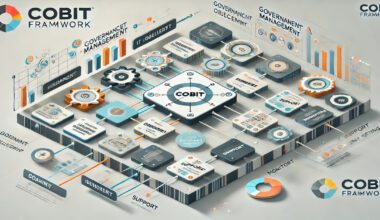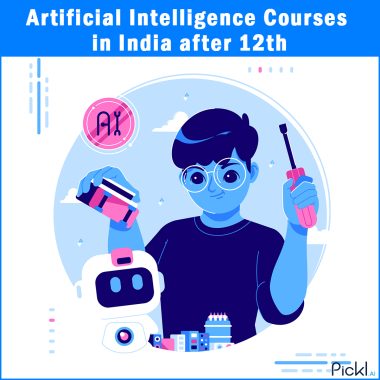Summary: Generative AI is revolutionising industries by generating personalised content, optimising processes, and driving innovation. From personalized marketing in retail to accelerated drug discovery in healthcare, this transformative technology is reshaping how businesses operate and interact with customers. However, challenges related to ethics, data privacy, and workforce implications must be addressed.
Introduction
Generative AI has emerged as a transformative force across various sectors, reshaping how businesses operate, innovate, and interact with customers. This technology, which can produce text, images, audio, and even code, is not just a trend but a profound shift in the capabilities of Artificial Intelligence.
As industry experts navigate this new landscape, understanding the implications of generative AI is crucial for leveraging its potential while mitigating associated risks.
This blog explores the fundamentals of generative AI, its implications across different industries, challenges and risks, strategic considerations for industry leaders, real-world applications, future trends, and answers to frequently asked questions.
Understanding Generative AI
Generative AI refers to a class of Artificial Intelligence models that can generate new content based on existing data. Unlike traditional AI that primarily analyses or categorises data, generative AI creates novel outputs that mimic human creativity. Key technologies underpinning generative AI include:
Foundation Models
These are large-scale models trained on diverse datasets that enable them to perform multiple tasks across various modalities—text, images, video, and audio. Examples include OpenAI’s GPT series and DALL-E for image generation.
Machine Learning Techniques
Generative models typically use techniques like Generative Adversarial Networks (GANs) and Variational Autoencoders (VAEs) to learn patterns in data and generate new instances that adhere to those patterns.
Natural Language Processing (NLP)
NLP allows generative AI to understand and produce human language, facilitating applications like chatbots and automated content creation.
The implications of generative AI are vast, with potential applications ranging from creative industries to healthcare and finance. As organisations increasingly adopt these technologies, understanding their capabilities becomes essential for industry experts.
Implications for Different Industries
Generative AI is revolutionising various sectors by enhancing operational efficiency, improving customer experiences, and driving innovation. This transformative technology enables the creation of new content, insights, and solutions based on existing data, thus reshaping how industries function. Below are some of the key implications of generative AI across different industries.
Healthcare
In healthcare, generative AI can aid in drug discovery by simulating molecular interactions and predicting the efficacy of compounds. It can also enhance diagnostic tools by generating synthetic medical images for training purposes.
Finance
The banking sector stands to benefit immensely from generative AI through personalised customer interactions via chatbots and automated financial advice. It can also streamline operations by automating compliance checks and fraud detection.
Manufacturing
Generative AI can optimise design processes by generating innovative product designs based on specified parameters. It also plays a role in predictive maintenance by analysing equipment data to foresee failures before they occur.
Entertainment and Media
In the creative domain, generative AI can produce original content—be it music composition or scriptwriting—tailored to audience preferences. This technology enables personalised marketing campaigns by generating content that resonates with target demographics.
Retail
Retailers can leverage generative AI for inventory management by predicting demand trends based on historical sales data. Additionally, it can enhance customer experiences through personalised recommendations generated from user behaviour analysis.
Read More: 7 Cool Vector Databases for Generative AI Applications
Challenges and Risks
While generative AI offers immense potential, it also presents significant challenges and risks that must be addressed. Industry experts need to be aware of these issues to ensure responsible adoption and mitigate potential negative impacts.
Bias and Fairness
Generative models are only as good as the data they are trained on. If the training data contains biases, the outputs will reflect those biases, leading to ethical concerns about fairness in decision-making processes.
Intellectual Property Issues
The ability of generative AI to create content raises questions about ownership. Who holds the rights to content generated by an AI? This ambiguity complicates legal frameworks surrounding intellectual property.
Security Concerns
The misuse of generative AI for creating deepfakes or misinformation poses significant security risks. Organisations must remain vigilant about the potential for malicious applications of this technology.
Job Displacement
Automation driven by generative AI may lead to job displacement in certain sectors as tasks traditionally performed by humans become automated. Balancing efficiency gains with workforce implications is critical.
Strategic Considerations for Industry Experts
As industry experts navigate the integration of generative AI into their organisations, several strategic considerations should guide their approach:
Invest in Education and Training
Ensuring that employees understand how to leverage generative AI effectively is crucial. Organisations should invest in training programs that enhance digital literacy and familiarise staff with new tools.
Develop Ethical Frameworks
Establishing clear ethical guidelines for the use of generative AI is essential. This includes addressing issues related to bias, transparency in decision-making processes, and accountability for outputs generated by AI systems.
Foster Collaboration Across Departments
Generative AI implementation should not be siloed within IT departments; cross-functional collaboration between teams—including marketing, operations, and compliance—can yield more innovative applications of the technology.
Monitor Regulatory Developments
As governments worldwide begin to regulate the use of Artificial Intelligence, staying informed about legal frameworks will be vital for compliance and risk management.
Case Studies and Real-World Examples
Several organisations have successfully integrated generative AI into their operations. Below are notable case studies showcasing how various organisations have successfully implemented generative AI technologies to achieve significant outcomes.
OpenAI’s ChatGPT
This conversational agent has transformed customer service interactions across industries. Companies like Shopify have integrated ChatGPT into their platforms to provide instant support and personalised shopping experiences.
NVIDIA’s BioNeMo
In pharmaceuticals, BioNeMo accelerates drug discovery by using generative models to simulate molecular interactions efficiently. This innovation reduces time-to-market for new drugs significantly.
Coca-Cola’s Marketing Campaigns
Coca-Cola has utilised generative AI to create personalised marketing content tailored to individual consumer preferences. This approach enhances engagement and drives sales through targeted advertising strategies.
These examples illustrate how organisations are harnessing generative AI’s capabilities to drive innovation and improve operational efficiency.
Future Trends and Innovations
Generative AI is rapidly evolving, shaping the future of technology and its applications across various industries. As organisations strive to harness the power of this innovative technology, understanding the emerging trends and innovations is crucial for staying competitive. Looking ahead, several trends are likely to shape the future landscape of generative AI:
Increased Personalisation
As data collection methods improve, generative AI will enable even more personalised experiences across sectors—from tailored marketing messages in retail to customised learning paths in education.
Integration with Other Technologies
The convergence of generative AI with other emerging technologies like blockchain and Internet of Things (IoT) will unlock new possibilities for secure data sharing and real-time analytics.
Improved Human-AI Collaboration
Future advancements will likely focus on enhancing collaboration between humans and machines. Tools that allow users to interact intuitively with generative models will become more prevalent.
Regulatory Frameworks
As concerns about privacy and ethical use grow, regulatory frameworks governing the deployment of generative AI will evolve. Organisations will need to adapt quickly to comply with new regulations while maintaining innovation momentum.
Conclusion
Generative AI represents a paradigm shift in how industries operate, innovate, and engage with customers. While its potential benefits are immense—from enhancing productivity to driving creativity—the associated challenges cannot be overlooked.
Industry experts must navigate this landscape thoughtfully by investing in education, developing ethical frameworks, fostering collaboration, and staying informed about regulatory changes. By doing so, they can harness the power of generative AI responsibly while unlocking new opportunities for growth and innovation across sectors.
Frequently Asked Questions
What is Generative AI?
Generative AI refers to Artificial Intelligence systems capable of creating new content—such as text, images, or music—based on learned patterns from existing data.
How Does Generative AI Impact Different Industries?
Generative AI impacts various industries by optimising processes such as product design in manufacturing, personalising customer interactions in retail and finance, enhancing creative production in media, and accelerating drug discovery in healthcare.
What are Some Challenges Associated with Generative AI?
Challenges include bias in outputs due to flawed training data, intellectual property concerns regarding ownership of generated content, security risks from misuse (e.g., deepfakes), and potential job displacement due to automation.



